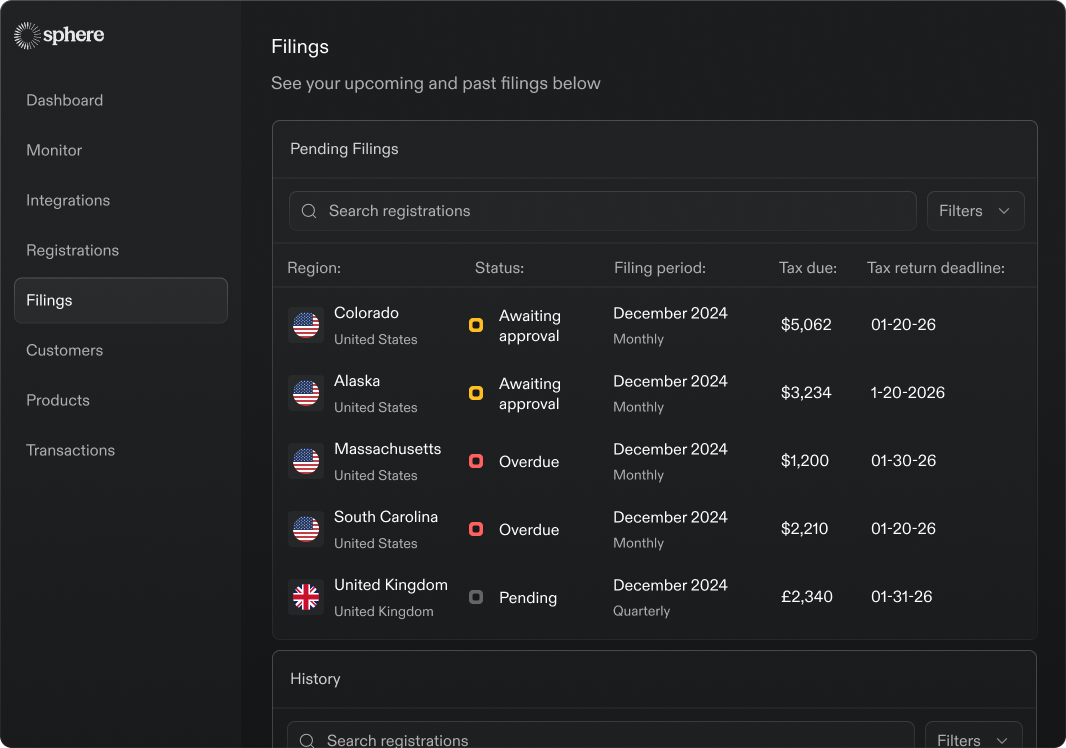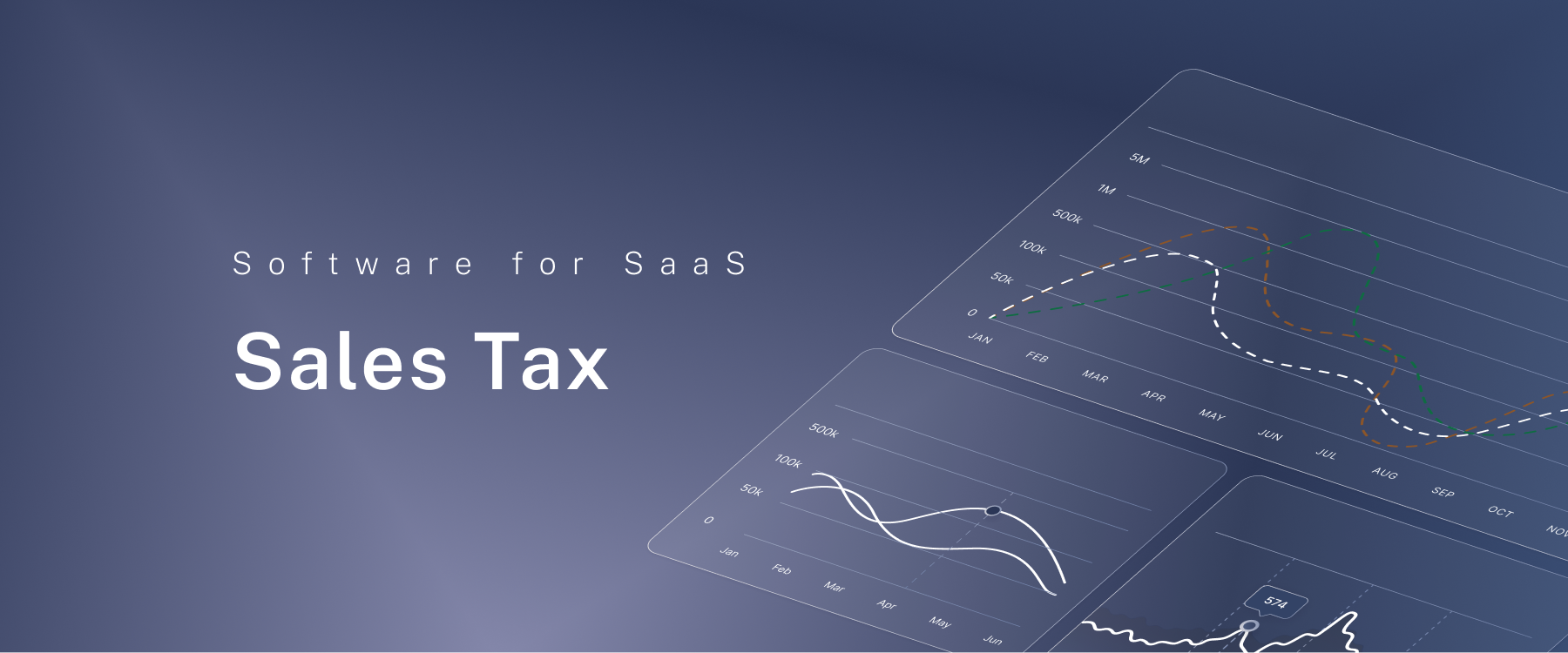.png)
The next time you’re in Chicago catching a concert or ballgame–or streaming a movie–you might notice that the Windy City has some unique taxes. Chicago’s Amuseum Tax is a city-level tax that applies not only to live events like concerts and football games, but to streaming services like Netflix, Spotify, and cloud gaming.
What does this mean if your business has digital entertainment customers in Chicago? It means you likely need to charge the city’s 10.25% tax on electronically delivered amusements. Fail to comply, and you could face penalties, interest, and compliance headaches.
This guide breaks down what the Chicago Amusement Tax covers, who has to collect it, how rates and exemptions work, and how to register and file correctly so your business can stay compliant.
What Is the Chicago Amusement Tax?
The Chicago Amusement Tax is a local, Chicago-only, tax that charges patrons for the privilege of attending or accessing an “amusement” within the city. Because it’s local, it’s collected by the Chicago Department of Finance and is used to fund services and infrastructure.
For example, if you operate an amusement (from a concert venue to an entertainment streaming platform), you’re responsible for collecting the tax from your Chicago customers and remitting it to the city.
It’s vital to understand that the tax is based on where your customer is located, not where you or your business is located. So if someone with a Chicago billing address subscribes to your service, you’ll likely need to collect the amusement tax.
Current Chicago Amusement Tax rates:
- 10.25% for streaming services and electronically delivered amusements
- 9% for in-person events (concerts, sporting events, and other recreational activities)
- 3% for ticket resales through registered sellers
These rates apply only within Chicago city limits. They're separate from Illinois state sales tax, and they stack on top of other local taxes you might already be collecting.
How Has the Tax Evolved? (From Ballparks to Netflix)
Early Origins
The Chicago Amusement Tax isn’t new. It actually originated back in 1948 and was levied on admission fees for activities like attending a Frank Sinatra concert or a ball game at Wrigley Field. All money spent on tickets to these spectacles went to the upkeep of the city and its services.
Expansion to Streaming Services
In 2015, Chicago extended the in-person amusement tax to electronically delivered amusements, i.e. “The Netflix Tax.” This brought streaming video, streaming audio, online games, and other digital entertainment into the tax base. Suddenly, businesses like Spotify and Xbox Live, who had enjoyed selling subscriptions relatively tax free, were required to start collecting sales tax from residents with Chicago billing addresses.
The move wasn't without controversy. A legal challenge, the Labell v. City of Chicago case, argued that the tax violated the Internet Tax Freedom Act (ITFA) and placed an undue burden on interstate commerce. But Chicago's ruling was upheld, and the tax remained in place. Since then, other cities, like nearby Evanston, IL, have followed Chicago's lead and expanded their own amusement taxes to cover digital services.
Rate Increases & Revenue Impact
The Chicago Amusement Tax raises significant revenue for the city and is likely not going anywhere. By 2023, it was bringing in about $258 mm per year in revenue, driven largely by the fact that more and more people are subscribing to streaming services and online entertainment.
In 2025, the city raised the Chicago Amusement Tax rate from 9% to 10.25%, making Chicago one of the most expensive cities in the US for subscribing to a streaming service.
How Does the Amusement Tax Relate to the PPLTT?
Chicago has another local tax that can sometimes get confused or conflated with the Amusement. Tax. The 9% Personal Property Lease Transaction Tax (PPLTT) covers the lease or use of computer software in Chicago, and includes SaaS platforms like Salesforce or Dropbox.
To compare and contrast:
- Amusement tax – Currently 10.25%; Applies to entertainment (streaming video, audio, music, games, etc.)
- PPLTT – Currently 9%; Applies to software and data processing (SaaS tools, cloud storage, etc.)
It’s important to note that some businesses may fall under both taxes. For example, if your business offers both a video streaming service and a SaaS software for video creators, then you’d need to track which of your products triggers which tax. The Amusement Tax rate would apply to the streaming videos while the PPLTT would apply to your app for video creators. Misclassifying your product could lead to penalties and interest.
What Products and Services Are Taxable?
Digital Amusements
The Chicago Amusement Tax is charged to a Chicago resident on electronically delivered amusements. Taxed purchases include:
- Streaming video - Netflix, Hulu, Disney+, YouTube Premium
- Streaming audio - Spotify, Apple Music, Pandora
- Online games - PlayStation Network, Xbox Live, Steam subscriptions
- Virtual events - online concerts, comedy shows, theater performances
The key to knowing when to charge the Chicago Amusement Tax on digital sales is your customer’s billing address. If they have a Chicago address, they are subject to the tax.
Important note: Permanent downloads are excluded. If someone buys a movie or album to own forever, that's generally not subject to the amusement tax. But subscriptions, rentals, and temporary access are taxable.
In-Person Amusements
This 9% rate applies to more traditional in-person entertainment.
- Concerts & live performances
- Sporting events
- Boat rides and cruises
- Fairs, carnivals, festivals, historic sites
- Other recreational activities (ice skating, bowling, etc.)
The tax applies to the entry fee and any other mandatory charges. Optional fees, like concessions or merchandise, are generally not included unless packaged with the full price of admission. However, they may be subject to other taxes, like sales tax.
Ticket Resales
Registered amusement ticket resellers, like StubHub, are required to collect the amusement tax, but at a reduced rate of just 3% when selling tickets on behalf of an original purchaser.
A 2023 court ruling in City of Chicago v. StubHub clarified that reseller platforms acting as agents aren't directly liable for unpaid taxes if the individual reseller fails to comply. However, registered resellers still need to track and remit the 3% rate on their own transactions.
Who Must Comply (and Who Is Exempt)?
Businesses Responsible
Any operator of an amusement is responsible for collecting and remitting the Chicago Amusement Tax. This includes:
- Streaming platforms and digital entertainment providers
- Concert venues and sports stadiums
- Recreation centers and activity operators
- Registered ticket resellers
It doesn’t matter where the business’s offices or HQ is located. If you have customers in Chicago (as determined by their billing address), you have nexus and you're required to comply.
Exemptions
Not all entertainment is taxable. Chicago provides exemptions for:
- Live cultural performances in venues with 1,500 seats or fewer
- Not-for-profit events - limited to 2 per year, maximum 14 calendar days total
- Primarily educational activities like lectures, seminars, or workshops
But note that these exemptions often require documentation or an advance application to ensure tax-exempt status. If you think your event or service qualifies, check with the Chicago Department of Finance before you choose not to collect taxes. Failing to do so can trigger back taxes and even an audit.
What Is the Impact on Companies?
The Chicago Amusement tax creates real challenges for companies offering digital or in-person entertainment.
First, companies must determine if they are liable for the tax. Businesses that make more than $100,000 in revenue in the city must register with the City of Chicago and collect. Unlike with economic nexus the state of Illinois, there is no transaction threshold for who must collect Chicago city taxes.
These taxes are pass-through taxes, meaning companies charge the tax to the consumer and then remit it to the city. But because of this, consumers in Chicago generally pay more than customers in other cities. A $19.99/month Netflix subscription becomes a $22.04 subscription with the tax added on. This can be a determining factor for price-sensitive consumers.
Further, different taxes apply to different purchases. Like in the example above, the same company might be required to charge the 10.25% Chicago Amusement Tax on their video streaming service and the 9% PPLTT on their SaaS software for video creators. Businesses must make sure they understand what tax applies to each transaction and charge accordingly.
Failing to collect, or misclassifying transactions, can lead to penalties, interest and audits that delve into every aspect of your company’s finances. Significant tax collection failures can lead to public scrutiny that pulls focus away from product development and new customer acquisition.
When doing business in Chicago, it’s vital to get taxation right.
Registering, Calculating, and Filing the Amusement Tax
Nexus & Registration
Businesses that make more than $100,000 in sales to customers in the city of Chicago are considered to have economic nexus in the city and are required to register and collect city-level taxes.
Once you have crossed that revenue threshold, your next steps are to:
- Register for an Illinois Business Tax (IBT) Number with the Illinois Department of Revenue
- Create an account on Chicago Business Direct, the city’s online tax portal
- File Form 7510, Application for Amusement Tax License
After you’re approved, you’ll receive your amusement tax license and it’s time to start collecting tax.
Calculating the Tax
Be sure to apply the correct rate based on the service type and the applicable tax.
Streaming Subscriptions Example
Your customer in Chicago pays you $20/month for a streaming service.
- Chicago Amusement Tax = $20 × 10.25% (for streaming) = $2.05
- Total charge = $22.05
Concert Tickets Example
A music lover buys a $100 ticket to a live concert in Chicago.
- Chicago Amusement Tax = $100 × 9% (for in-person events) = $9
- Total charge = $109
It’s important to note that if you bundle pricing, say a concert ticket and parking, then you may be liable to pay the applicable tax on the entire purchase. To avoid that, best practice is to itemize charges.
Filing & Remittance
The Chicago Amusement Tax is filed and remitted monthly by the 15th of the month following the reporting period.
To comply, file Form 7510 tax return through the Chicago Business Direct portal. You’ll be asked to report:
- Total gross receipts subject to tax
- Applicable tax rate(s)
- Tax collected
- Total tax payment amount
If you miss the deadline, Chicago charges a 5% late penalty plus 12% annual interest on unpaid balances. These add up fast, so it's critical to file on time.
Also, keep detailed records at the transaction-level for at least four years. Chicago audits businesses regularly and you’ll need documentation to support your tax compliance decisions.
How Sphere Simplifies Amusement Tax Compliance
Managing Chicago's amusement tax manually is time-consuming and error-prone. Sphere automates the entire process so you can focus on growing your business instead of wrestling with local tax rules and regulations.
.png)
Monitoring & Registration
Sphere tracks your Chicago sales in real time and alerts you when you're approaching the $100,000 nexus threshold. When it's time to register, Sphere guides you through the process—from obtaining your Illinois IBT number to filing Form 7510 with the city’s tax authority.
Real-Time Tax Calculation
Sphere's AI-powered platform automatically applies the correct amusement tax rate based on your product type and customer location. Whether you're selling streaming subscriptions or event tickets, Sphere handles rate changes, bundled invoices, and effective dates without manual intervention.
Filing & Exemption Management
Sphere prepares and files your monthly Form 7510 returns, remits payment, and stores all documentation for audits. If you have exempt customers (like nonprofits or educational institutions), or sell to resellers, Sphere manages exemption certificates and applies them correctly to each transaction.
With Sphere, Chicago amusement tax compliance runs on autopilot.
Chicago Tax Doesn’t Have to Be Complicated
The Chicago Amusement Tax is one of the most unique local taxes in the US, and it's a big deal for SaaS and streaming companies with Chicago customers. Between the 10.25% rate on digital services, the monthly filing requirements, and the risk of penalties for non-compliance, it's easy to see why so many businesses struggle to comply.
But it doesn't have to be that way. With the right tools, you can automate nexus monitoring, tax calculation, registration, filing, and remittance, and stay tax compliant in Chicago without the headache.








.png)

.png)






